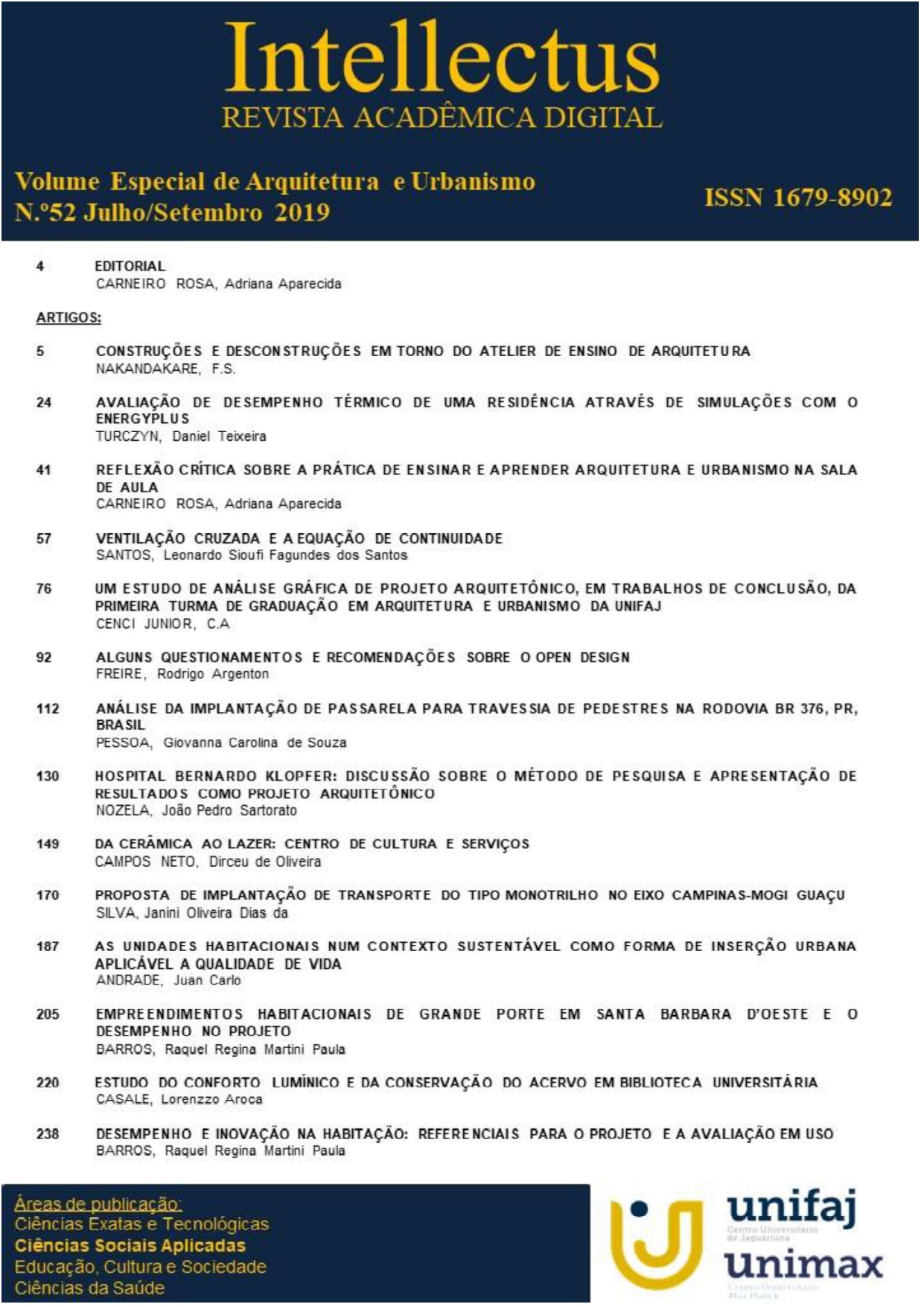AVALIAÇÃO DE DESEMPENHO TÉRMICO DE UMA RESIDÊNCIA ATRAVÉS DE SIMULAÇÕES COM O ENERGYPLUS
Palavras-chave:
Desempenho Térmico, Eficiência Energética, EnergyPlusResumo
O desempenho térmico das edificações está diretamente associado aos fatores geográficos e climáticos do local de inserção e das escolhas de formas e materiais feitas pelos projetistas. Uma das formas de avaliar o conforto térmico dos usuários de uma edificação é através do modelo adaptativo para ambientes naturalmente ventilados presente na ASHRAE55, no qual é possível definir os limites máximos e mínimos da zona de conforto e averiguar as condições da temperatura operativa interna do ambiente. Um dos modos de conseguir as temperaturas operativas internas é através de simulações computacionais no programa EnergyPlus. A partir da averiguação do desempenho térmico de uma edificação é possível estudar comparativamente soluções alternativas de projeto e de escolha de materiais, buscando soluções que aumentem o período de conforto sem a necessidade da utilização de sistemas elétricos. O objetivo deste trabalho é avaliar o desempenho térmico dos ambientes de estar e social de uma residência unifamiliar localizada no município de Campinas, bem como das alternativas de projeto e de materiais construtivos propostos para a redução do período de desconforto. A avaliação desenvolvida apontou o total de 2.574 graus-hora de desconforto no ano para o período de ocupação (14-22h). Foram realizadas vinte e quatro simulações alternativas para esses ambientes, alterando as camadas e os materiais construtivos que conformam a cobertura, o piso, os vidros, as paredes internas e os elementos de proteção solar, bem como três simulações que mesclaram essas alterações. Os resultados apontam que é possível reduzir a carga de desconforto de diversas maneiras, desde soluções baratas e simples, como pintar a telha de branco e diminuir a espessura da laje de piso, até soluções com materiais mais específicos e custosos, como o uso de vidros insulados.



